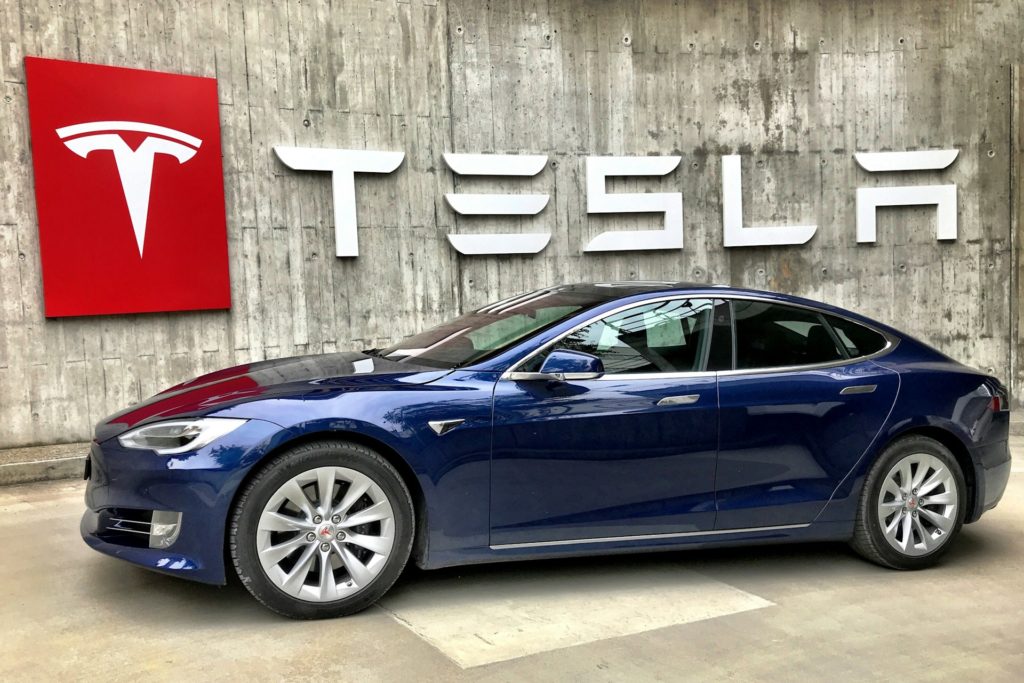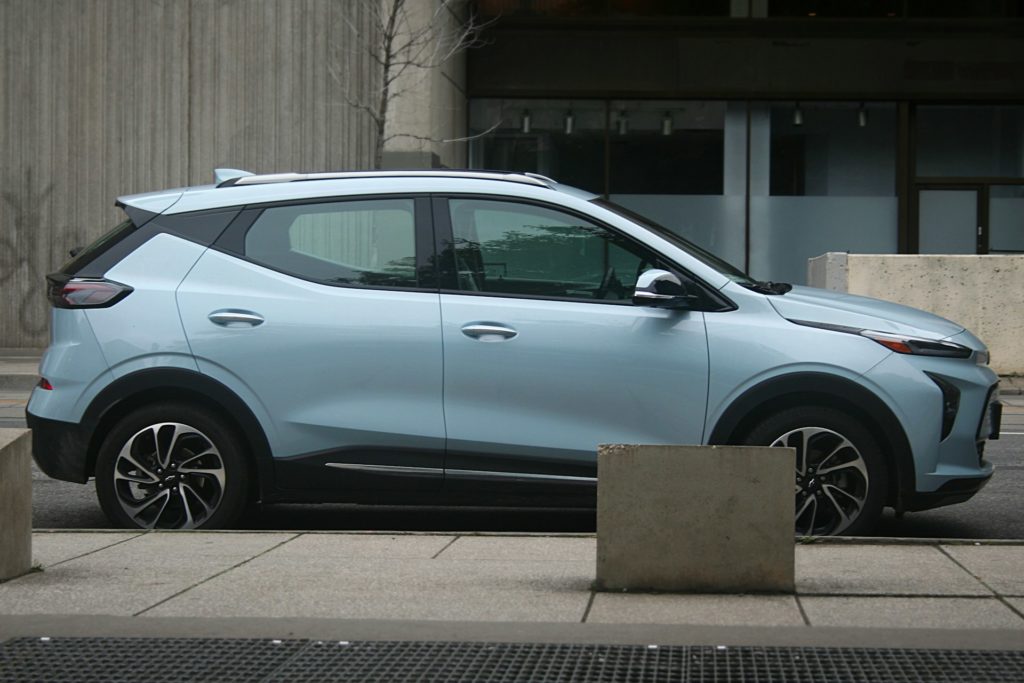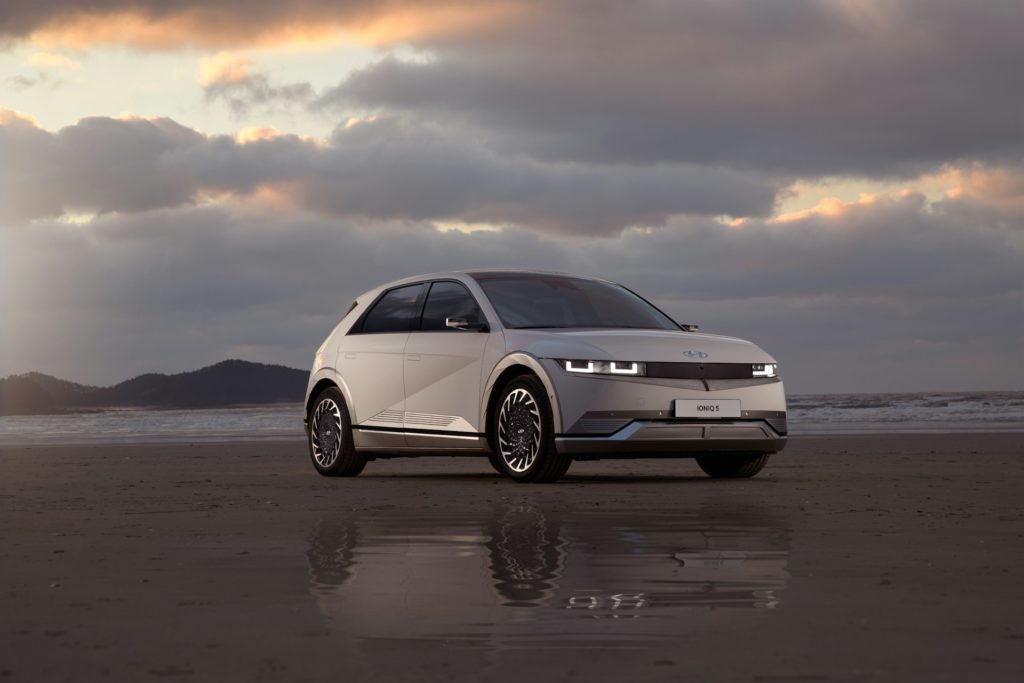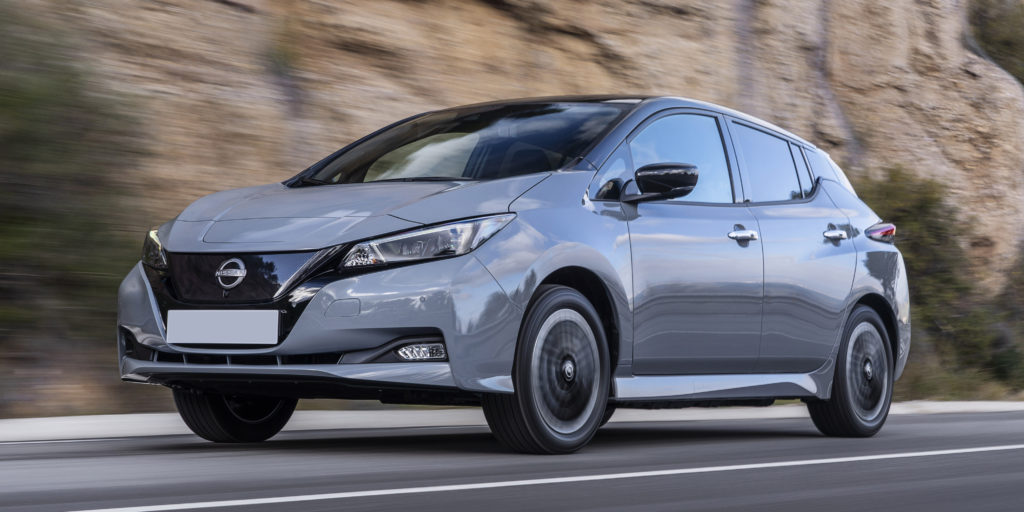
Looking to make a more eco-friendly choice with your next car purchase?
In this article, we will explore what makes a car environmentally friendly, including fuel efficiency, alternative fuel options, and low emissions.
We will also highlight the top 5 environmentally friendly cars on the market, such as the Tesla Model 3 and Toyota Prius.
We will discuss key factors to consider when choosing an environmentally friendly car, including price, range, charging options, size, and safety features.
Stay tuned to find the perfect green vehicle for your needs!
Table of Contents
Key Takeaways:
- Fuel efficiency, alternative fuel options, and low emissions are key factors in making a car environmentally friendly.
- Tesla Model 3, Toyota Prius, Chevrolet Bolt EV, Hyundai Ioniq, and Nissan Leaf are some of the top environmentally friendly car options in the market.
- When choosing an environmentally friendly car, consider factors such as price, range, charging options, size and space, and safety features.
What Makes a Car Environmentally Friendly?

An environmentally friendly car is characterized by factors such as energy efficiency, sustainable transportation, and zero tailpipe emissions, contributing to a reduction in the carbon footprint.
Energy efficiency plays a crucial role in the eco-friendliness of a vehicle.
Electric vehicles are known for their high energy efficiency, using electricity as a power source rather than fossil fuels.
This shift greatly reduces greenhouse gas emissions and helps combat climate change.
Additionally, hybrid cars combine traditional combustion engines with electric motors, offering improved fuel efficiency and lower emissions.
Sustainability is another key aspect of environmentally friendly cars.
Technologies like regenerative braking and lightweight materials help make vehicles more sustainable by reducing energy consumption and resource depletion.
Embracing eco-friendly features such as solar panels and biofuels further enhances a car’s sustainability profile.
Fuel Efficiency
Fuel efficiency plays a crucial role in determining the environmental impact of a vehicle, with metrics such as miles per gallon (MPG) and energy consumption ratings reflecting its efficiency.
When a vehicle maximizes its fuel efficiency, it not only reduces emissions that contribute to air pollution but also minimizes the overall carbon footprint on the planet.
Higher MPG and lower energy consumption figures indicate that the vehicle requires fewer resources to cover the same distance, thus conserving energy and reducing the strain on natural resources.
The advancement in technology has led to the development of electric vehicles that showcase exceptional energy efficiency and performance.
These electric vehicles are equipped with innovative technologies that optimize energy use and offer impressive driving ranges, contributing significantly to sustainable transportation.
Alternative Fuel Options
Exploring alternative fuel options such as hydrogen fuel cells, battery electric vehicles (BEVs), and plug-in hybrids (PHEVs) provides environmentally conscious consumers with choices to reduce reliance on traditional gasoline.
Hydrogen fuel cells considered one of the cleanest energy sources, operate by converting hydrogen gas into electricity, emitting only water vapor as a byproduct.
On the other hand, BEVs run solely on electricity stored in high-capacity batteries, eliminating tailpipe emissions and significantly reducing greenhouse gas emissions.
HEVs, blending internal combustion engines with electric propulsion, offer improved fuel efficiency and lower emissions compared to conventional vehicles.
Low Emissions
Low emissions are a fundamental aspect of environmentally friendly cars, with adherence to stringent emission standards, reduced carbon footprint, and sustainable manufacturing practices contributing to a greener automotive industry.
By minimizing harmful pollutants released into the atmosphere, vehicles with lower emissions play a crucial role in combatting air pollution and promoting healthier communities.
Reducing greenhouse gas emissions is not only vital for meeting EPA regulations but also for mitigating climate change effects.
The implementation of advanced exhaust systems and innovative engine technologies has significantly aided in achieving cleaner emissions, aligning with global efforts towards a more sustainable future.
Top 5 Environmentally Friendly Cars

The top 5 environmentally friendly cars that lead the market in sustainability include the Tesla Model 3, Toyota Prius, Chevrolet Bolt EV, Hyundai Ioniq, and Nissan Leaf.
Out of these top eco-friendly vehicles, the Tesla Model 3 stands out for its revolutionary all-electric performance, zero tailpipe emissions, and cutting-edge technology that redefines the concept of electric driving.
The Toyota Prius remains a pioneer in hybrid technology, blending a gasoline engine with an electric motor to maximize fuel efficiency and minimize greenhouse gas emissions.
The Chevrolet Bolt EV is a compact electric car known for its impressive range per charge and commitment to reducing carbon footprint.
The Hyundai Ioniq offers three eco-friendly options: hybrid, plug-in hybrid, and all-electric, providing versatile choices for environmentally conscious drivers.
The Nissan Leaf is one of the first mass-market electric cars, known for its reliability, comfort, and emission-free operation, making it a popular choice among eco-conscious drivers.
Tesla Model 3

The Tesla Model 3 stands out as a pioneer in electric vehicles, offering zero tailpipe emissions and exceptional energy efficiency in a sleek and sustainable package.
When you step inside the Tesla Model 3, you are immediately greeted by a modern interior equipped with advanced technology that seamlessly integrates with sustainable driving practices.
The electric features of this innovative vehicle not only reduce greenhouse gas emissions but also provide a smooth and quiet driving experience unlike any traditional combustion engine car.
Its aerodynamic design and regenerative braking system boost its energy efficiency, allowing you to maximize your driving range while minimizing your environmental impact.
Toyota Prius

The Toyota Prius has been a trailblazer in the realm of hybrid cars, showcasing exceptional fuel efficiency and impressive EPA-rated range data that solidify its position as an environmentally conscious choice.
One of the standout features of the Toyota Prius is its innovative hybrid technology, which seamlessly combines a gasoline engine with an electric motor to optimize fuel consumption.
This synergy allows the Prius to achieve remarkable fuel efficiency without compromising on performance.
The seamless transition between electric and gasoline power ensures a smooth and exhilarating driving experience, making it a popular choice among eco-conscious drivers.
Chevrolet Bolt EV

The Chevrolet Bolt EV exemplifies the advancements in electric vehicles with its impressive range, efficient use of kilowatt-hours, and EPA-rated data that position it as a frontrunner in sustainable transportation.
One of the standout features of the Chevrolet Bolt EV lies in its ability to run solely on electric power, eliminating the need for gasoline and reducing harmful emissions.
This eco-friendly vehicle is equipped with a robust battery system that allows it to travel long distances without compromising on performance.
In terms of energy efficiency, the Bolt EV boasts an impressive utilization of kilowatt-hours, ensuring that each unit of energy is maximized to power the vehicle efficiently.
Hyundai Ioniq

The Hyundai Ioniq combines hybrid technology with exceptional fuel efficiency, offering a sustainable driving experience that minimizes the environmental impact associated with traditional combustion-engine vehicles.
One of the standout features of the Hyundai Ioniq is its seamless transition between its electric motor and gasoline engine, providing a smooth and efficient drive.
This hybrid car intelligently switches between power sources based on driving conditions, optimizing fuel consumption without compromising performance.
The Ioniq’s regenerative braking system converts kinetic energy into electric energy, which is then used to recharge the battery, enhancing its overall energy efficiency.
This innovative technology not only improves fuel economy but also reduces harmful emissions, making the Ioniq a true pioneer in eco-friendly driving.
Nissan Leaf

The Nissan Leaf sets the standard for electric vehicles with its adherence to emission standards, impressive ACEEE Green Score, and commitment to sustainable transportation practices that define it as an environmentally friendly choice.
Equipped with a powerful electric performance, the Nissan Leaf showcases remarkable acceleration and quiet operation, making it a pleasurable driving experience.
Its ability to go from 0 to 60 mph in just a few seconds demonstrates the efficiency of electric engines.
Along with its performance, the Leaf’s compliance with strict emission regulations contributes to cleaner air quality, reducing the carbon footprint associated with traditional fuel vehicles.
The ACEEE Green Score of the Nissan Leaf is a testament to its eco-friendly features, ranking it high in sustainability ratings.
This recognition highlights the Leaf’s impact on the environment, emphasizing its role in promoting a greener future for transportation.
With advanced technology and a focus on sustainability, the Nissan Leaf serves as a leading example in the realm of electric vehicles, offering a combination of performance, efficiency, and environmental consciousness.
Factors to Consider When Choosing an Environmentally Friendly Car
Several factors should be evaluated when selecting an environmentally friendly car, including price, range capabilities, charging infrastructure, size, and safety features that align with individual preferences and eco-conscious considerations.
One critical aspect to consider when choosing an eco-friendly vehicle is the charging infrastructure.
Ensuring convenient access to charging stations, including fast-charging options, can greatly impact the usability and practicality of an electric or plug-in hybrid car.
Moreover, spaciousness is another essential consideration for those who prioritize comfort or have a growing family.
Many eco-conscious models from established automakers like Tesla and Toyota offer ample interior space without compromising sustainability features.
Price
Price plays a significant role in the selection of an environmentally friendly car, with options ranging from budget-friendly models to premium offerings from renowned car brands, allowing consumers to align their preferences with their budgets.
When considering the affordability of eco-friendly vehicles, it’s essential to examine how different car brands price their sustainable models.
Some manufacturers prioritize making environmentally conscious cars accessible to a wider audience, offering competitive pricing and incentives to encourage adoption.
On the other hand, luxury car brands may have higher price points for their electric or hybrid vehicles, targeting consumers looking for both sustainable options and premium features.
Alternative ownership models, such as car subscriptions or leasing programs, have also emerged as viable options for those interested in eco-friendly transportation but hesitant to commit to traditional ownership.
These models provide flexibility and lower upfront costs, making them attractive for individuals seeking a more sustainable lifestyle without a substantial financial investment.
Range
The range of an environmentally friendly car, as indicated by EPA data, is a crucial factor determining its usability, with considerations for charging options and long-term vehicle longevity influencing consumer decisions.
Having an adequate range in eco-friendly vehicles plays a vital role in reducing range anxiety, ensuring that drivers can confidently travel longer distances without worrying about running out of battery power.
The EPA range statistics provide a standardized measure that allows consumers to compare different electric car models and make informed choices based on their personal driving needs.
The availability of a well-developed charging infrastructure is essential to support the adoption of electric vehicles, offering convenience and peace of mind to drivers by ensuring they can easily find charging stations when needed.
The range of a vehicle has a direct impact on its long-term sustainability, influencing its overall carbon footprint and environmental benefits.
Extending the range of electric cars can promote widespread adoption, ultimately contributing to a cleaner and more sustainable transportation system for the future.
Charging Options
Charging options for environmentally friendly cars, coupled with considerations for renewable energy sources, play a pivotal role in enhancing the practicality and sustainability of electric vehicles, ensuring convenient recharging solutions and reduced environmental impact.
By exploring innovative charging solutions for eco-friendly vehicles, manufacturers are revolutionizing the way we power our cars.
Integration of renewable energy sources like solar and wind not only reduces carbon footprint but also promotes energy self-sufficiency.
- Access to real-time EPA range data enables drivers to plan their journeys efficiently, minimizing range anxiety and maximizing convenience.
- Sustainable charging solutions such as smart grid technology and bi-directional charging systems are crucial for establishing a resilient and eco-conscious transportation infrastructure.
Size and Space
The size and space considerations for environmentally friendly cars are diverse, with car brands offering compact to spacious models that cater to varying needs, including innovative ownership models like car subscriptions that provide flexible usage options.
When looking at eco-friendly vehicles, it’s fascinating to see the range of options available, from sleek compact cars ideal for urban environments to larger, family-friendly models for those needing more space.
Each brand brings its unique touch to the table, ensuring that consumers have a plethora of choices when it comes to size and features.
Car subscriptions have further revolutionized the industry by allowing drivers to switch between different-sized vehicles as per their requirements, making it a convenient and adaptable solution for evolving needs.
Safety Features
Safety features are paramount in environmentally friendly cars, with leading car brands incorporating advanced technologies that enhance occupant protection, vehicle longevity, and overall maintenance requirements, ensuring a secure and sustainable driving experience.
These safety measures not only safeguard the passengers but also contribute to reducing environmental impact by preventing accidents.
Car manufacturers integrate features such as automatic emergency braking, lane-keeping assist, and adaptive cruise control to enhance safety levels.
The integration of advanced safety technologies in eco-friendly vehicles has a positive ripple effect on vehicle maintenance, reducing the risk of unforeseen repairs and enhancing overall reliability.
Conclusion
The adoption of electric vehicles and environmentally friendly cars is instrumental in fostering sustainable transportation practices and combating climate change through reduced emissions and energy-efficient mobility solutions.
Electric vehicles play a vital role in reducing harmful emissions that contribute to air pollution and global warming.
By utilizing electric vehicles, individuals and communities can significantly decrease their carbon footprint and help create cleaner, healthier surroundings.
These eco-friendly cars are part of a larger shift towards greener and more sustainable modes of transportation, aligning with the global effort to combat climate change and achieve a more environmentally responsible future.
Have any suggestions or comments? Get in contact with us today!
Frequently Asked Questions
1. What are the best cars for the environment?
The best cars for the environment are those that produce low emissions and have high fuel efficiency. These cars are usually electric, hybrid, or have a high MPG rating.
2. Are electric cars the best option for the environment?
Electric cars are one of the best options for the environment as they produce zero emissions and have no reliance on fossil fuels. However, they may not be suitable for everyone’s needs and budgets.
3. What factors should I consider when looking for the best car for the environment?
When searching for the best car for the environment, consider factors such as fuel efficiency, emissions, and the type of fuel the car uses. Additionally, look at the car’s overall sustainability and environmental impact.
4. Can I find affordable cars that are also good for the environment?
Yes, there are many affordable options for environmentally-friendly cars such as hybrid or compact electric vehicles. These cars not only have a lower impact on the environment but can also save you money on fuel costs in the long run.
5. How can I ensure I am choosing the most eco-friendly car for the environment?
To ensure you are choosing the most eco-friendly car, look for vehicles with high MPG ratings and low emissions. Additionally, consider the car’s overall sustainability, manufacturing process, and use of sustainable materials.
6. Are there any incentives for purchasing environmentally friendly cars?
Yes, many governments and organizations offer incentives for purchasing environmentally friendly cars, such as tax credits or rebates. These incentives can make it more affordable for individuals to choose a more eco-friendly option.
